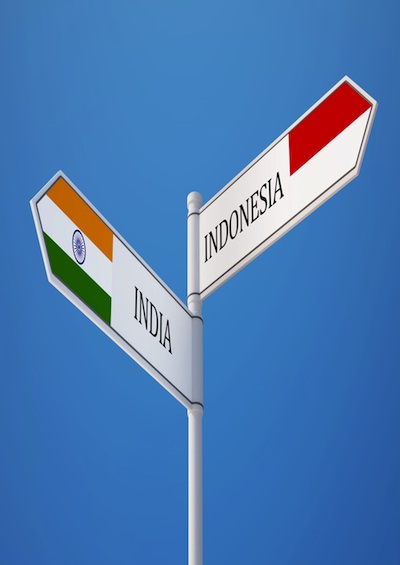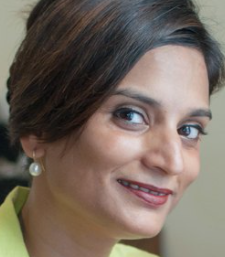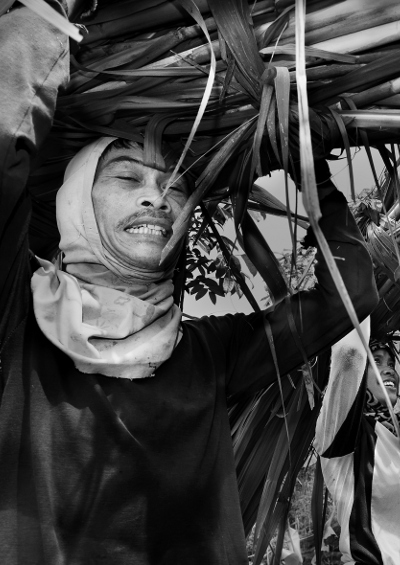Modi and Jokowi: Why the World Should Take Notice
Comparing the leaders of the world’s largest and third-largest democracies.
October 18, 2014

For India and Indonesia, the world’s largest and third-largest democracies, 2014 is a watershed. It is the year that powerful political dynasties, a long-term feature of the region’s electoral landscape, were finally supplanted by a new breed of popular leader.
That is why the twin elections — of Narendra Modi in India and of Joko Widodo in Indonesia — are both landmarks.
The two leaders come from outside of what are the traditional bastions of political power in their countries. Modi, whose family ran a tea stall, has risen from the near bottom of India’s caste and class hierarchies to become Prime Minister.
Jokowi, as Widodo is universally known in Indonesia, came from a similarly underprivileged background. The son of a carpenter, he was a furniture seller, before becoming Mayor of Solo, a mid-sized city in central Java.
In elections earlier this year, both Modi and Jokowi took on political opponents who were the very embodiments of the entrenched political establishment. Modi squared off against Rahul Gandhi, scion of the Nehru-Gandhi family that has led India’s Congress party since Indian independence.
Jokowi’s main rival was Prabowo Subianto, a former son-in-law of military dictator Suharto, and the head of the country’s Special Forces in the years before Suharto’s downfall in 1998.
With their strong grass-roots support, clean personal reputations and reformer credentials, Modi and Jokowi have raised hopes for change within their nations.
The story of their rise and the dynamism they represent has also given investor sentiments around the globe a boost.
A captivating storyline, but…
And yet, these superficial similarities obscure the more trenchant differences that separate the two men in terms of temperament, policy inclinations and political circumstances.
As a leader, Modi is dominant and combative, whereas Jokowi is consensual and conciliatory. In his more than 12-year reign (2001-2014) as Chief Minister of the Indian state of Gujarat, Modi acquired a reputation for governing with a firm hand, as he pursued an aggressive, pro-business agenda.
Since taking charge of the country, Modi has ensured a concentration of powers in the Prime Minister’s office (PMO). Ministers have been left with little elbowroom and need to secure PMO approval even before appointing key staff.
Modi’s authority is embodied in his person. He was widely described in the Indian media as running a Presidential-style campaign in this year’s election, although India has a parliamentary system of governance.
Modi’s projection of power is physical. During the election campaign, he crisscrossed the country attending thousands of events. And he even used 3D holograms to project his image in places where he could not be present.
On the campaign trail, he also famously remarked that it took a man with a “56 inch chest,” a reference to his own broad torso, to bring development to the relatively backward parts of India.
Different temperaments
In contrast, Jokowi is physically slight and unassuming in manner. As governor of Jakarta (a post to which was elected in 2012), he avoided the tangible trappings of power like fancy cars and security details.
He often walked around public markets and squares listening to people’s concerns first hand, and he was known for unexpectedly joining popular city events like rock concerts and marathons.
While Modi’s reputation in Gujarat was built on the back of large infrastructure projects, Jokowi’s reputation derives from his two-term stint as mayor of Solo. During this time, he was able to transform a formerly crime-ridden city into a center for regional arts and culture.
It was in Solo that he demonstrated his mediation skills by developing a consultative approach, as demonstrated for example by relocating street vendors away from a park in the city centre.
The vendors had built up a squalid, semi-permanent market–place that caused major traffic snarls. All attempts at forcibly removing them had failed. Spurning heavy-handed tactics, Jokowi held over 55 informal meetings with the street sellers to find a mutually acceptable solution. This entailed moving them to an alternative location in exchange for financial incentives, as well as the establishment of public transportation links to the new venue.
As Jakarta governor, Jokowi employed a similar approach in encouraging 500-odd smallholders at the city’s crowded Tanah Abang market to move off the streets. Although this second attempt met with less success, it nonetheless underscores Jokowi’s preferred approach to tackling problems: patience and dialogue with an aim to developing consensus.
Different priorities
Modi and Jokowi also have markedly divergent policy priorities. The Indian Prime Minister is an economic reformer with capitalist instincts.
A known admirer of the Chinese model of development (he visited China four times as Gujarat’s Chief Minister), Modi’s achievements in Gujarat included attracting substantial investments into large manufacturing and power projects. He introduced business-friendly policies aimed at cutting red tape and making land acquisition easier than in other parts of the country.
However, critics say that Modi’s conception of “development” came at the cost of the large-scale displacement of the poor. Gujarat’s strides in social infrastructure (such as education and gender-empowerment) have also been criticized as not matching the pace of economic progress.
Since becoming Prime Minister, Modi has surprisingly not focused on economic reforms as much as on foreign policy positioning. He has also announced two well-publicized domestic programs, one related to sanitation and the other to financial inclusion.
The first one, called the swachh bharat scheme, aims at eliminating open defecation by constructing toilets in every household by 2019. The latter’s goal is to open 75 million bank accounts by January 2015 to serve the country’s poor.
These are both programs aimed at the the underprivileged , rather than the business elite. And yet, in emphasizing personal hygiene and finance rather than any broader public policy strategy, they reveal Modi’s inclination towards viewing the individual, rather than the community, as the locus for “progress.”
Individualism vs. communitarianism
Jokowi, on the other hand, is a communitarian. In Jakarta, as in Solo, he made community welfare a consistent priority. His sympathies lie with small business owners, like the street vendors of Solo.
As governor of Jakarta, his flagship projects included a free healthcare card and education funds for the poor, the shifting of thousands of squatters out of flood catchments into low cost apartments, and the restarting of a much-delayed public transport overhaul.
None of these projects were an unqualified success. And yet, Jokowi was elected President, despite the well-run and cash-rich campaign conducted by his rival, Prabowo Subianto.
Moreover, it was and is Prabowo, not Jokowi, who enjoys the support of the majority of big industrial conglomerates in Indonesia. (Prabowo’s own brother, Hashim Djojohadikusomo, is a business tycoon whose net worth was estimated at $700 million in 2013, by Forbes).
Jokowi’s popularity derives largely from his humble style, personal honesty and commitment to community participation in the political process.
Minorities as a test case
Significantly, for a large and plural country like Indonesia, Jokowi has also ensured he has strong credentials amongst the country’s minority communities.
When he ran for governor of Jakarta, for example, he chose Basuki Tjahaja Purnama, a Christian of Chinese-descent, as his running mate. This was remarkable because Indonesia is a Muslim-majority country with a history of racially motivated discrimination against the ethnic Chinese community.
During the Presidential campaign, Prabowo openly played the “Muslim” card, garnering the support of the majority of Islamic parties and laying claim to the mantle of “true” Muslim.
Meanwhile, Jokowi, was the subject of a disinformation campaign that insinuated he was a Chinese Christian, rather than the Javanese Muslim he is. Nonetheless, the former Jakarta governor remained steadfast in his public espousal of pluralism
In contrast, Modi’s track record with regards to India’s minority communities is bleak.
The Indian Prime Minister is accused of doing little to stop the 2002 religious riots that took place under his watch as Chief Minister in Gujarat, in which more than 1,000 people, mostly Muslims, were killed.
These are allegations he has consistently denied and been cleared of by the courts, although many civil society groups continue to hold him culpable. Modi is also closely affiliated to the right-wing Hindu organisation, the Rashtriya Swayamsevak Sangh (RSS), whose objective is to make India a Hindu nation.
Veteran politician vs. the novice
The third major contrast between the Indian Prime Minister and Indonesian President is in their political circumstances. Modi might have risen from humble origins, but he is a political veteran with a proven knack for working party machinery to his advantage.
Under Modi, the Bharatiya Janta Party (BJP) won a landslide victory, giving them a clear majority in parliament. This is a feat that has not been pulled off since the start of India’s so-called “coalition-era” in 1989.
Modi can therefore operate on the basis of a strong mandate. And while he still needs to work with the Chief Ministers of India’s multiple states, many of whom are from opposition parties, the Prime Minister has more of a free hand at the center than any other Indian leader has had in decades.
Jokowi is a comparative newbie to politics, having entered the fray as recently as 2005. Prior to being elected as President he has only had experience running cities. Most importantly, his room for maneuver as leader of Indonesia is far more constrained than Modi’s is in India.
Getting things done
The Indonesian legislature is controlled by a coalition led by Jokowi’s archrival Prabowo. Known as the Red and White coalition, this grouping has already used its majority to pass a bill opposed by Jokowi, ending direct elections for village heads, mayors and governors.
Notably, Jokowi was himself a beneficiary of such direct local elections. Without them, he would have had precious little chance to get elected as mayor of Solo. The new bill is widely seen as an attempt by the political establishment to fight back against the possibility of “upstarts” like Jokowi coming to power again.
To complicate matters even more for Jokowi, not only is parliament dominated by Jokowi’s rivals, his authority is weak even within his own party, the PDI-P. The party chairperson is Megawati Sukarnoputri, Indonesia’s president from 2001 to 2004 and the daughter of Indonesia’s founding President, Sukarno.
Very much an establishment person, she continues to control the party machinery. That significantly reduces Jokowi’s leeway to conduct negotiations with potential political allies.
Both Modi and Jokowi face a formidable task as leaders of the world’s first and third-largest democracies, respectively India and Indonesia are eclectic and demographically immense nations.
The two new leaders share a long list of challenges: cleaning up politics and public life, harnessing demographic dividends to productive use, fixing creaking infrastructure, maintaining pluralism, and trying to find the right power-sharing equation between the center and provinces.
Modi and Jokowi differ in their outlook and approach to solving these problems – and neither has an easy task. How each fares will be of great relevance to both countries, and of continuing interest globally.
Takeaways
Modi and Jokowi: Comparing the leaders of the world’s largest and third-largest democracies.
For India and Indonesia, 2014 is a very significant year.
In 2014, both India and Indonesia saw political dynasties being supplanted by “outsiders”.
India’s Modi and Indonesia’s Jokowi both rose to their leadership posts from humble beginnings.
Modi is an economic reformer with capitalist instincts and a known admirer of the Chinese model of development.
Jokowi’s preferred approach to tackling problems is patience and dialogue with an aim to developing consensus.
Modi views the individual, rather than the community, as the locus for progress, while Jokowi is a communitarian.

